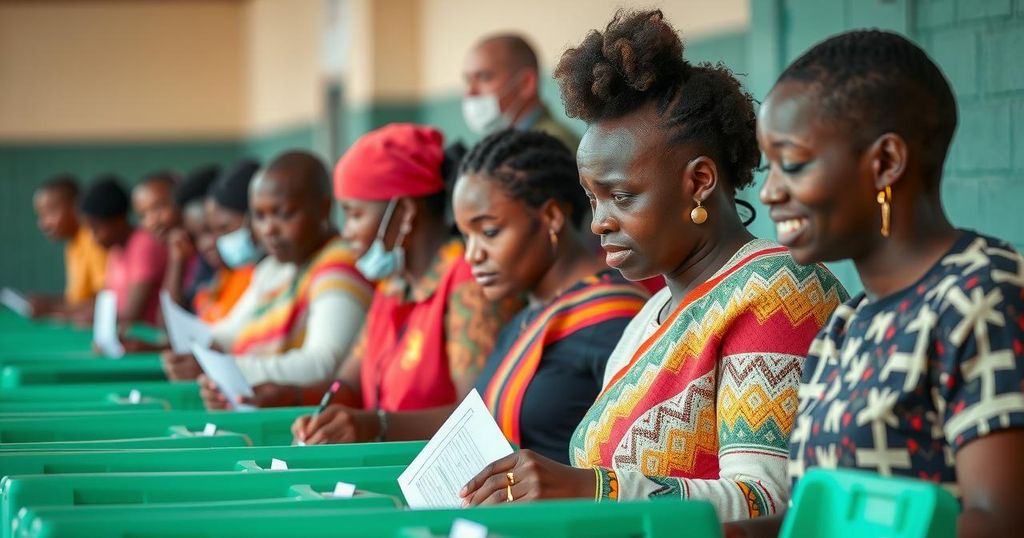Ghana’s election day sees voters selecting a new president as Nana Akufo-Addo steps down after two terms. Former President John Mahama aims to return, while Vice-President Mahamudu Bawumia seeks to become the first Muslim leader. Economic challenges, including inflation and a debt crisis, are key concerns for voters. Approximately 19 million Ghanaians are eligible to vote, and the presidential election may lead to a runoff if no candidate secures over 50% of the votes.
Election Day has officially arrived in Ghana, where voters are poised to select a new president amid a backdrop of economic hardship characterized by a debt crisis and soaring living costs. This election guarantees a transition in leadership, as Nana Akufo-Addo concludes his tenure after two terms. Former President John Mahama seeks to reclaim the presidency for the National Democratic Congress (NDC), while Vice-President Mahamudu Bawumia represents the governing New Patriotic Party (NPP) and would be Ghana’s first Muslim leader if successful. Other notable candidates include businessman Nana Kwame Bediako, who appeals to younger voters, and Alan Kyerematen, who departed from the NPP last year.
With approximately 19 million Ghanaians registered to vote, the election involves not only the presidential election but also the selection of parliamentary representatives across 275 constituencies. Ghana’s political landscape since the return to multi-party democracy in 1992 has been dominated by either the NDC or the NPP, with no party having achieved more than two consecutive terms in power. Voters have a ten-hour period, from 07:00 to 17:00 GMT, to cast their ballots, with presidential results expected within three days. To win outright, a candidate must secure over 50% of the vote; otherwise, the top two candidates will enter a run-off by late December.
During the campaign period, Bawumia asserted, “What is clear is that notwithstanding the challenges we’ve had, we have performed better than the government of John Dramani Mahama,” while Mahama emphasized, “It is a choice between the Ghana we have today and the Ghana we want together. A Ghana of opportunity, prosperity, and justice for all.” Ghanaians have faced significant inflation, peaking at 54.1% in 2022, leading to widespread poverty and decreased living standards, as reported by the World Bank. Additionally, high unemployment rates particularly affect the youth, who are crucial to this election’s outcome.
This election stands as a pivotal point for Ghana’s future, deeply influenced by economic conditions and leadership choices. Voter turnout and the ability of candidates to address pressing issues will play critical roles in determining the country’s trajectory.
Ghana’s political landscape has been shaped significantly by economic challenges, particularly inflation and debt crises. With elections occurring every four years, voter sentiment has often mirrored the pressing economic realities faced by the populace. The current election is noteworthy, not only for its candidates but also due to Ghana’s efforts to encourage women’s participation in politics. The political dynamic highlights a historical pattern where the NDC and NPP parties alternate in power, underscoring the competitive nature of Ghanaian democracy. The recent escalation of inflation, culminating in a fiscal crisis, adds urgency and complexity to the electorate’s decision-making process.
In conclusion, Ghana’s upcoming election is a critical juncture for the nation, as voters decide between longstanding political figures amidst challenging economic conditions. The candidates’ promises and their ability to resonate with the electorate’s needs could redefine the political landscape in the face of significant adversities. The results of this election will not only determine the next president but also reflect the will and aspirations of the Ghanaian people in overcoming their current hardships.
Original Source: www.bbc.co.uk






